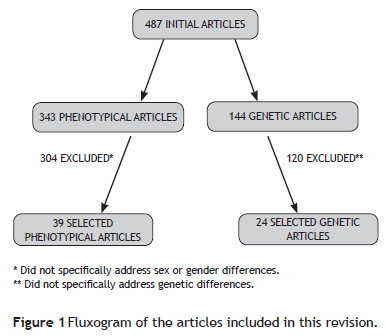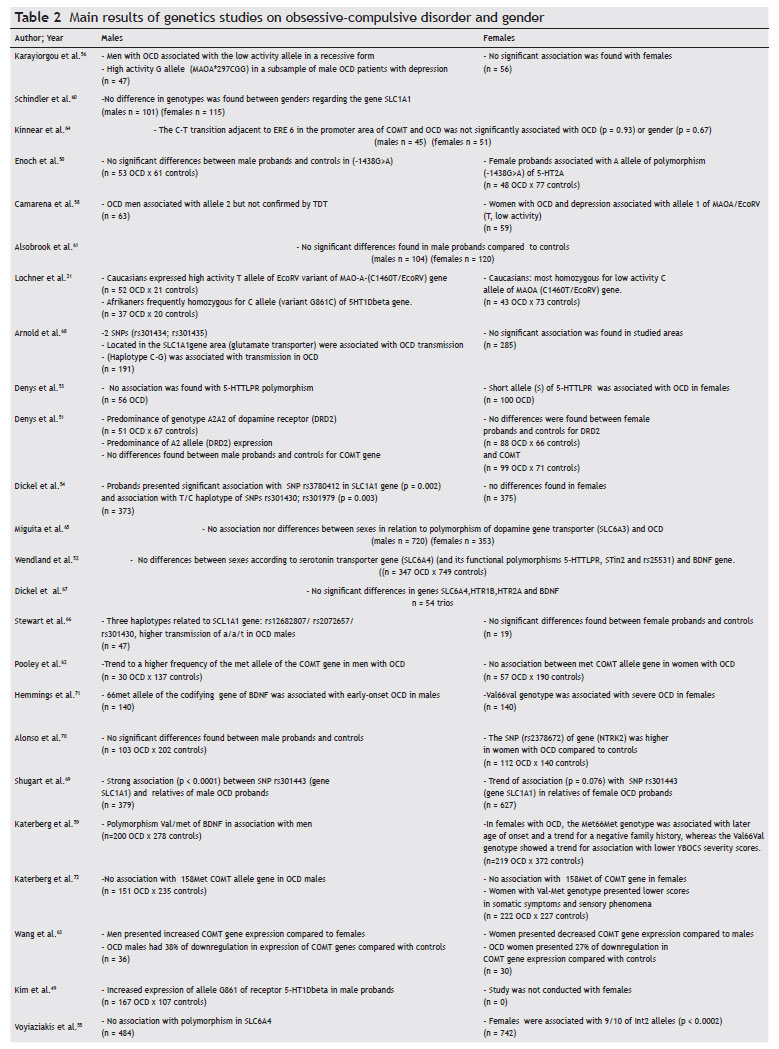INTRODUCTION: Obsessive-compulsive disorder (OCD) is a heterogeneous condition, in which subtypes have been proposed. Previous studies suggested that gender plays a relevant role in OCD phenotypic expression. This study aimed to review the literature on gender differences in clinical, genetic or familial aspects of OCD. METHOD: A conventional review was conducted, including all papers that investigated demographic, clinical, and genetic aspects of OCD according to gender. The search was based on data available in Medline and PsycINFO databases in the last 20 years, using as keywords: obsessive-compulsive disorder; and: gender, sex, male, female, demographic characteristics, clinical features, clinical characteristics, genetic, genes, genetics gender OCD, genes OCD, genes OCD males, genes OCD females. RESULTS: Sixty three of 487 phenotypical and genetics studies were selected. Most studies indicate that male patients are more likely than females to be single, present early onset of symptoms and chronic course of the disorder, greater social impairment, more sexual-religious and aggressive symptoms, and greater comorbidity with tic and substance use disorders. Female patients present more contamination/cleaning symptoms and greater comorbidity with eating and impulse-control disorders. Genetic and family studies are inconclusive, but suggest that gender may play a role in the disease expression. CONCLUSIONS: Gender is a relevant factor that should be taken into account when evaluating OCD patients. More studies are necessary to determine whether in fact it defines a homogeneous and particular group in OCD.
Obsessive-compulsive disorder; Gender identity; Sex; Phenotype; Genetics




